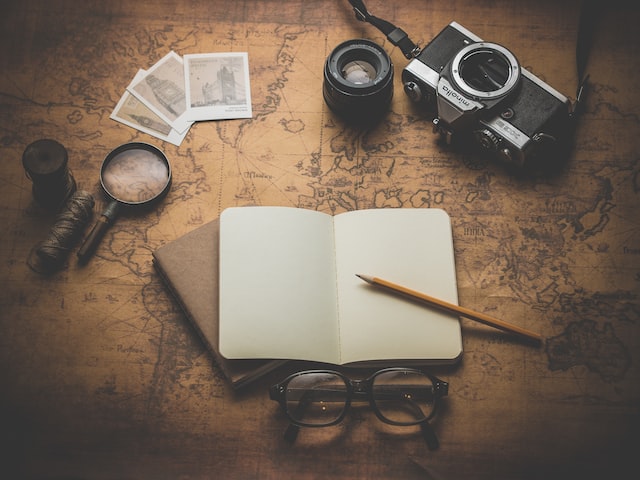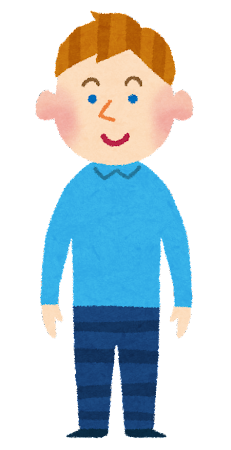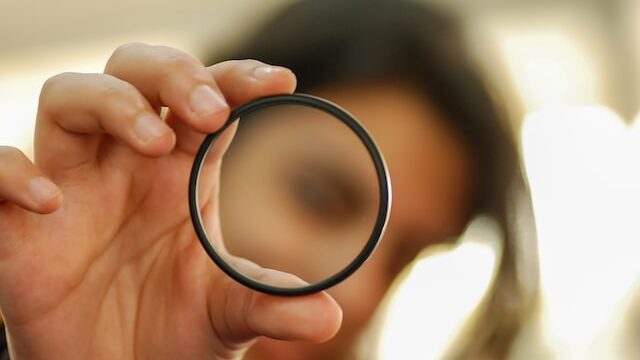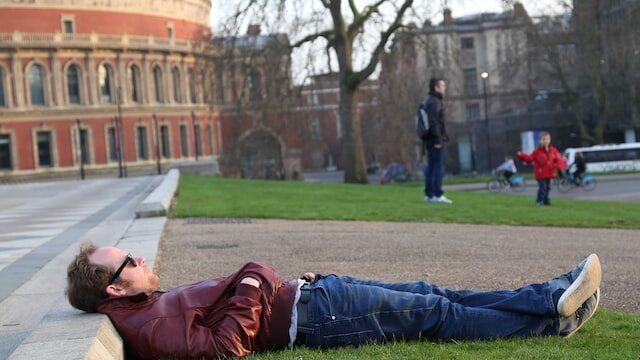ライフハックとしてではなく、英語学習にも極めて有用なのが、著名人が10分程度のプレゼンを行うTEDです。
TED Talksとは、あらゆる分野のエキスパートたちによるプレゼンテーションを無料で視聴できる動画配信サービスのことです。10年ほど前にサービスが開始されてから、政治、心理学、経済、日常生活などの幅広いコンテンツが視聴できることから人気を集めています。
RareJob English Lab
TEDは4000を超える膨大な数の動画があります。しかし慣れないうちは、動画の探し方や視聴のコツが分かりませんよね。この記事では、数多くのTEDを見てきた管理人(塩@saltandshio)が、心を揺さぶられたトークをあらすじと一緒にご紹介します。
ビジネス英会話を効率よく身につけたい方におすすめスクール
シェーン英会話
シェーンは1977年の創業以来、ネイティブ講師が英語を英語で教える「直接教授法」を採用しています。首都圏におけるスクール拠点数は、ネイティブ講師の英会話スクールでNo.1。駅から近いスクールが多いので通いやすく時間を有効に使えます。
スピークバディ パーソナルコーチング
1日1時間の短期集中トレーニングで、あなたの英語力向上をコーチが全力でサポートします。あなたの英語の世界が、劇的に変わります。
ダニエレ・クエルチャ:最も楽しい経路が選べる地図
地図アプリは、目的地までの最短ルートを探すのに便利です。しかし、もし私たちがぶらぶら歩きたいならどうでしょう?研究者のダニエレ・クエルチャは、行きたい道だけでなく、その道中でどう感じたいかも考慮した「ハッピーマップ」を作成しています。(約7分)。Daniele Querciab:Happy maps
[PR]無料体験レッスン実施中!全国208校、創業40年の老舗英会話スクール【シェーン英会話】一分の差が生んだ幸福感
いつもの通りからひとつ離れた道なのに、驚くほど景色が違った。そんな体験をしたことはありませんか。エンジニアのダニエレ・クエルチャもその一人でした。彼は、職場までの道のりをスマートフォンのアプリが指し示す通りに通っていました。
しかし、ある日たまたま隣の道を通って職場に向かってみたところ、そこには驚きの世界が待っていました。となりの道は車が通っておらず、木がたくさんあって緑に覆われており、とても素敵な景色だったからです。びっくりした気持ちが落ち着くと、ダニエレ・クエルチャは急に自分の事が恥ずかしくなりました。
その過程で道を走るのを楽しむとか、自然を肌で感じるとか、行き会う人と視線を交わすといったことはまるで考えませんでした。それも単に、通勤時間を1分短縮するためです。
In this single journey, there was no thought of enjoying the road, no pleasure in connecting with nature, no possibility of looking people in the eyes. And why? Because I was saving a minute
out of my commute.
ほんの少し職場に着くために、自分はどれほど豊かな時間を見過ごしていたのか。この経験がダニエレ・クエルチャのその後の人生を変えました。
[PR]まずは無料カウンセリング”続けるため”の オンライン英語コーチ「スピークバディ パーソナルコーチング」地図アプリは本当に素晴らしい?
目的地に向かうために、地図アプリを使用する人はたくさんいます。確かに地図アプリの性能は素晴らしく、目的地まで最短距離で案内してくれます。
しかし地図アプリは、目的地への行き方として限られた道順しか示しません。それが目的地に行く唯一正しい道だと思い込ませます。
However, the app also assumes there are only a handful of directions to the destination. It has the power to make those handful of directions the definitive direction to that destination.
時間優先ではない道を選ぶと、心が豊かになる道になる。そんな経験をして、ものの見方が変わったダニエレ・クエルチャは、人々が最短で目的地に向かうのではなく、最も街を楽しめる道を案内するというシステムを作る仕事に方向転換しました。
[PR]しちだの魔法ペンなら35日でバイリンガルに!楽天4部門1位の英会話!<七田式>ちょっと寄り道が幸せへのみちしるべ
ダニエレ・クエルチャはケンブリッジ大学の同僚と一緒に、クラウドソーシングを利用したウェブゲームを作成します。そのゲームとは、2つの写真を被験者に見せて、どちらが美しいか、静かだと思うか、楽しそうと思うかについて選んでもらうというものです。
そうして、何千というユーザーからアンケートをとると、どんな場所や景色を人は好ましいと思うのか調べ上げたのです。その研究のあと、ダニエレ・クエルチャはYahoo Labsに加わり、人の感情によって選ばれた新しい地図とその道順を作成しました。
この地図では、地点Aから地点Bへの最短経路を見つけられるだけでなく、楽しい経路、美しい経路、静かな経路も見つけられます。
On this cartography, you’re not only able to see and connect from point A to point B the shortest segments, but you’re also able to see the happy segment, the beautiful path, the quiet path.
この実験に参加してもらった参加者からも、最短経路よりもずっと快適だったと感想を残しています。しかも、到着時間の違いはたった数分です。
[PR]知って得する、知らないと損をする!すぐに役立つ相手に合った「伝え方」のコツ!本当の快適さとはなにか
実験の参加者たちは、場所と思い出の結びつきの大切さも重要視していました。なぜなら人は、場所特有の匂いや音を長い間記憶しているからです。
だから見た目の美しさだけでなく、匂いや 音や 思い出との結びつきから最も好ましい経路を見つけてくれる地図があったらどうでしょう?
So what if we had a mapping tool that would return the most enjoyable routes based not only on aesthetics but also based on smell, sound, and memories?
ダニエレ・クエルチャは、スマートフォンから導き出されたたった一つの道を選ぶことにより、総合的な体験を人々から奪われてしまわないような取り組みをしています。駐車場の代わりに公園を選ぶだけでも、目的地までの道のりと思い出はまったく違ったものになるからです。
[PR]検定試験合格者累計140万人!スマホ対応☆国家資格ほか資格取得ならSMART合格対策講座まとめ:決まり切った道のほうが危険な道
ジム・キャリー主演の映画にトゥルーマンショーという作品があります。この作品の主人公は、自分が番組用の作り物の世界に住んでいることを知りません。
私たちもまた、効率という名の作り物の世界に住んでいるのかもしれません。
Perhaps we live in a world fabricated for efficiency.
私たちも、つい決まりきった道、決まりきった場所のほうが慣れているので、そちらの方を選びがちです。そこから一歩そとの世界に踏み出してみませんか?とダニエレ・クエルチャは言います。なぜなら、「冒険は危険だと思うかもしれないが、決まり切った日常こそ致命的だ」からです。
さぁ、今日はいつもと違う道を歩いてみましょう。きっと、そこには素敵な世界が広がっていることでしょう。
英語全文
I have a confession to make. As a scientist and engineer, I’ve focused on efficiency for many years. But efficiency can be a cult, and today I’d like to tell you about a journey that moved me out of the cult and back to a far richer reality.
<全文を読む>▼クリック▼
But after a month that I was cycling every day on the car-packed Mass. Ave., I took a different route one day. I’m not entirely sure why I took a different route that day, a detour. I just remember a feeling of surprise; surprise at finding a street with no cars, as opposed to the nearby
Mass. Ave. full of cars; surprise at finding a street draped by leaves and surrounded by trees. But after the feeling of surprise, I felt shame. How could I have been so blind? For an entire month, I was so trapped in my mobile app that a journey to work became one thing only: the shortest path.
In this single journey, there was no thought of enjoying the road, no pleasure in connecting with nature, no possibility of looking people in the eyes. And why? Because I was saving a minute out of my commute.
Now let me ask you: Am I alone here? How many of you have never used a mapping app for finding directions? Most of you, if not all, have. And don’t get me wrong — mapping apps are the greatest game-changer for encouraging people to explore the city.
You take your phone out and you know immediately where to go. However, the app also assumes
there are only a handful of directions to the destination. It has the power to make those handful of directions the definitive direction to that destination.
After that experience, I changed. I changed my research from traditional data-mining to understanding how people experience the city. I used computer science tools to replicate social science experiments at scale, at web scale. I became captivated by the beauty and genius of traditional social science experiments done by Jane Jacobs, Stanley Milgram, Kevin Lynch.
The result of that research has been the creation of new maps, maps where you don’t only find
the shortest path, the blue one, but also the most enjoyable path, the red one. How was that possible? Einstein once said, “Logic will get you from A to B. Imagination will take you everywhere.” So with a bit of imagination, we needed to understand which parts of the city people find beautiful. At the University of Cambridge, ith colleagues, we thought about this simple experiment.
If I were to show you these two urban scenes, and I were to ask you which one is more beautiful, which one would you say? Don’t be shy. Who says A? Who says B? Brilliant. Based on that idea, we built a crowdsourcing platform, a web game. Players are shown pairs of urban scenes, and they’re asked to choose which one is more beautiful, quiet and happy. Based on thousands of user votes, then we are able to see where consensus emerges. We are able to see which are the urban scenes that make people happy.
After that work, I joined Yahoo Labs, and I teamed up with Luca and Rossano, and together, we aggregated those winning locations in London to build a new map of the city, a cartography weighted for human emotions.
On this cartography, you’re not only able to see and connect from point A to point B the shortest segments, but you’re also able to see the happy segment, the beautiful path, the quiet path. In tests, participants found the happy, the beautiful, the quiet path far more enjoyable than the shortest one, and that just by adding a few minutes to travel time. Participants also love to attach memories to places. Shared memories — that’s where the old BBC building was; and personal memories — that’s where I gave my first kiss.
They also recalled how some paths smelled and sounded. So what if we had a mapping tool that would return the most enjoyable routes based not only on aesthetics but also based on smell, sound, and memories? That’s where our research is going right now.
More generally, my research, what it tries to do is avoid the danger of the single path, to avoid robbing people of fully experiencing the city in which they live. Walk the path through the park, not through the car park, and you have an entirely different path.
Walk the path full of people you love and not full of cars, and you have an entirely different path. It’s that simple. I would like to end with this thought: do you remember “The Truman Show?” It’s a media satire in which a real person doesn’t know he’s living in a fabricated world. Perhaps we live in a world fabricated for efficiency.
Look at some of your daily habits, and as Truman did in the movie, escape the fabricated world. Why? Well, if you think that adventure is dangerous, try routine. It’s deadly.
Thank you.
<閉じる>
\ ほかにも気になるトークが満載! /








